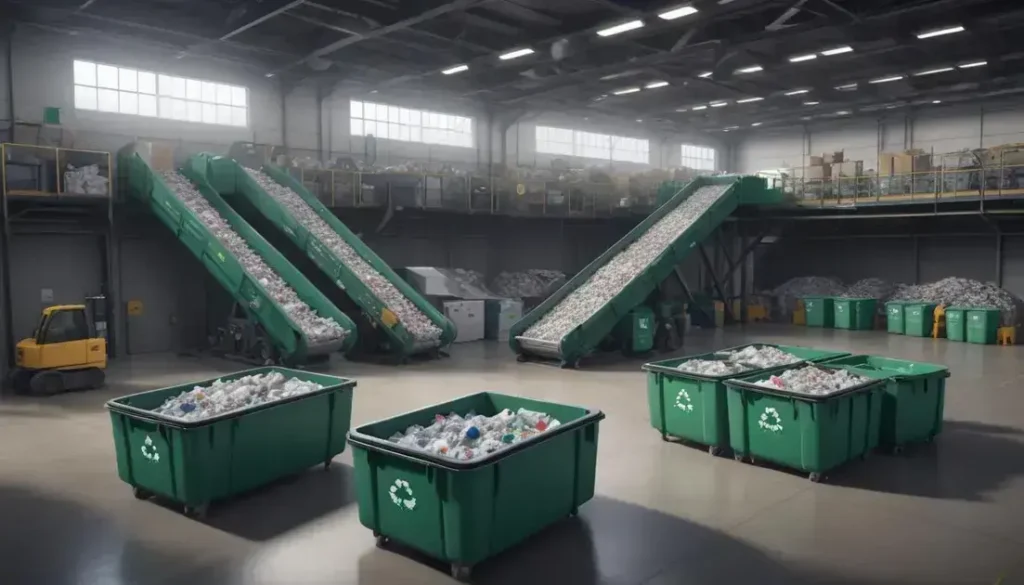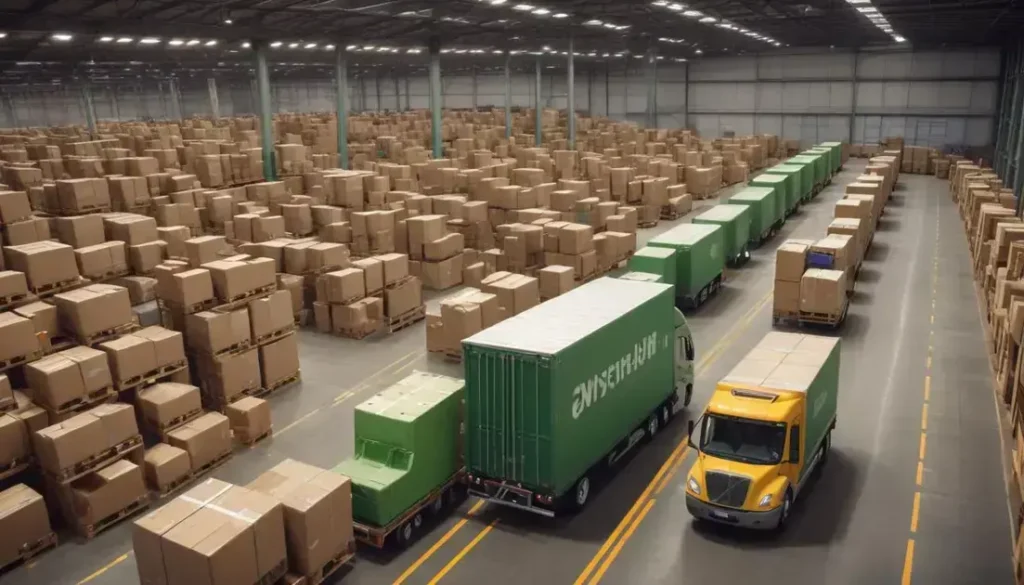Recycling in Australia is significantly improved by AI technologies, which enhance waste sorting efficiency, reduce contamination, and foster sustainable business practices through collaborative efforts with local councils and adherence to regulatory changes.
In recent efforts to improve sustainability, recycling has taken centre stage, particularly with advancements in AI technology. Let’s explore how these innovations are shaping the landscape.
Overview of Tetra Pak’s AI technology
Tetra Pak has taken a significant step forward with the integration of AI technology into their recycling processes. This innovation aims to enhance efficiency and effectiveness in sorting materials, thereby promoting better recycling outcomes.
A key feature of this technological advancement is machine learning. It allows the system to continually improve its sorting accuracy by analysing vast amounts of data on different materials. As a result, Tetra Pak can minimise contamination in recycled products, leading to higher-quality recycled materials.
Additionally, Tetra Pak’s AI solutions facilitate real-time monitoring of recycling operations. This capability not only boosts operational performance but also helps identify areas for improvement. Companies can thus respond quickly to any operational hiccups that may arise.
Overall, the blend of AI and recycling technologies positions Tetra Pak as a leader in sustainable packaging solutions. Their commitment to innovation paves the way for both environmental benefits and enhanced business efficiency, reinforcing the importance of collaborative efforts in the recycling sector.
The role of Recycleye in waste management
Recycleye is revolutionising waste management with cutting-edge AI technology that enhances the efficiency of recycling processes. By leveraging machine learning, Recycleye can accurately identify and categorise various materials on the conveyor belt.
This advanced system significantly reduces the contamination of recyclable materials, ensuring that purer outputs are sent to recycling facilities. Through real-time data analysis, Recycleye automatically adapts to different types of waste, making it a versatile solution in a fast-paced environment.
Moreover, Recycleye supports local councils and businesses by providing insightful data on waste generation patterns. This information is invaluable for improving recycling rates and implementing more effective local waste management policies.
With a strong focus on sustainability, Recycleye’s AI technology empowers communities to enhance their recycling efforts. In doing so, it contributes to reducing landfill waste and encourages a more circular economy.
Impact on recycling rates in Australia
The implementation of advanced technologies in recycling has significantly influenced recycling rates in Australia. With AI-driven solutions such as those from Tetra Pak and Recycleye, the efficiency of waste sorting has markedly improved.
These innovations help to reduce contamination levels in recyclables, leading to a higher quality of materials being processed. As a result, more materials are diverted from landfills and reintroduced into the production cycle, enhancing the overall recycling rate.
Moreover, community awareness and education programmes, complementing these technologies, play a crucial role in driving up participation in recycling initiatives. Australians are becoming more informed about the benefits of recycling, resulting in better sorting practices at the source.
Government policies aimed at increasing recycling capabilities, along with technological advancements, contribute to a robust framework for improving recycling outcomes. The focus on achieving a circular economy is gaining momentum, and these combined efforts are pivotal in fostering a sustainable future for Australia.
Collaboration with UK councils
The collaboration between Australian companies and UK councils represents a significant advancement in waste management strategies. By sharing expertise and best practices, both regions can enhance their recycling capabilities and implement innovative solutions.
Australian organisations, such as Tetra Pak and Recycleye, are pioneering AI technologies that can facilitate more effective waste sorting and recycling processes. Partnering with UK councils allows these companies to gain insights into different approaches to waste management, fostering a mutually beneficial exchange of knowledge.
In this collaborative environment, UK councils can learn from Australia’s experiences with advanced recycling technologies. Conversely, Australian companies can adapt these learnings to improve their own practices and tailor solutions to the unique challenges faced in their local contexts.
This synergy not only aids in increasing recycling rates but also strengthens international relationships. By working together, Australia and the UK can push towards a more sustainable future, leveraging innovative technologies to address global waste challenges.
Regulatory changes in Australia
Recent regulatory changes in Australia are reshaping the landscape of waste management and recycling. These changes aim to enhance sustainability by setting stricter guidelines for waste processing and increasing the responsibilities of businesses in managing their recyclable materials.
One significant change involves the introduction of new waste diversion targets. The government is pushing for higher recycling rates, compelling local councils and industries to collaborate more closely in achieving these goals. This shift encourages innovation and the adoption of advanced technologies to process waste efficiently.
Moreover, these regulations promote transparency in waste handling practices, ensuring that businesses report their recycling efforts accurately. This accountability is crucial for assessing Australia’s progress towards becoming a more sustainable society.
Additionally, the government is increasingly recognising the role of community engagement in achieving recycling objectives. By informing and educating the public about proper recycling methods, these regulations foster greater participation in recycling programs, ultimately benefitting the environment.
Future perspectives for Australian companies
The future perspectives for Australian companies in the recycling and waste management sector are promising. As technological advancements continue to evolve, businesses have the opportunity to leverage innovations such as artificial intelligence and data analytics to enhance their operational efficiency.
Adopting these technologies can lead to improved waste sorting processes, higher recycling rates, and reduced environmental impact. Australian companies are increasingly recognising the need to align their practices with global sustainability goals, positioning themselves as leaders in the green economy.
Moreover, the growing demand for sustainable products and services is pushing companies to rethink their strategies. Emphasising sustainability not only attracts environmentally conscious consumers but also opens doors to new markets. There is a notable shift towards circular economy practices, where companies focus on reusing materials and minimising waste.
Collaboration between businesses, local governments, and communities will play a crucial role in shaping these perspectives. By working together, stakeholders can create comprehensive waste management solutions that benefit all parties involved. Consequently, the outlook for Australian companies in this sector remains bright, driven by innovation and a commitment to sustainability.
Looking Ahead: Embracing a Sustainable Future
The journey toward a sustainable future in recycling and waste management in Australia is well underway. Companies that embrace advanced technologies and collaborate with local governments are paving the way for innovative solutions.
By focusing on sustainability, businesses can not only enhance their operational efficiency but also build stronger relationships with consumers who value environmental responsibility. This is a vital step in transforming the economy into a more sustainable model that benefits everyone.
As these changes continue, Australian companies have the opportunity to lead the way in global sustainability efforts. By staying committed to recycling advancements and embracing new practices, companies can thrive in this evolving market.
In conclusion, the future looks promising for those ready to adapt and innovate in recycling, ensuring a cleaner and greener Australia for generations to come.
Frequently Asked Questions
How is AI technology being used in recycling?
AI technology is enhancing the efficiency of waste sorting processes, reducing contamination, and improving overall recycling rates.
What impact do regulatory changes have on waste management in Australia?
Regulatory changes are setting stricter guidelines for waste processing, pushing for higher recycling rates and increased business responsibility in managing recyclable materials.
Why is collaboration important between Australian companies and UK councils?
Collaboration allows for the exchange of innovative waste management practices, which can lead to improved recycling outcomes and sustainability efforts.
What are the benefits of focusing on sustainability for businesses?
Focusing on sustainability can attract environmentally conscious consumers, open new markets, and enhance operational efficiency.
How can communities contribute to improving recycling rates?
Communities can improve recycling rates by engaging in educational programmes that inform citizens about proper recycling practices and the benefits of participating in recycling initiatives.
What does the future hold for recycling in Australia?
The future looks promising as Australian companies continue to adopt advanced technologies and sustainable practices, contributing to a cleaner environment and a circular economy.


